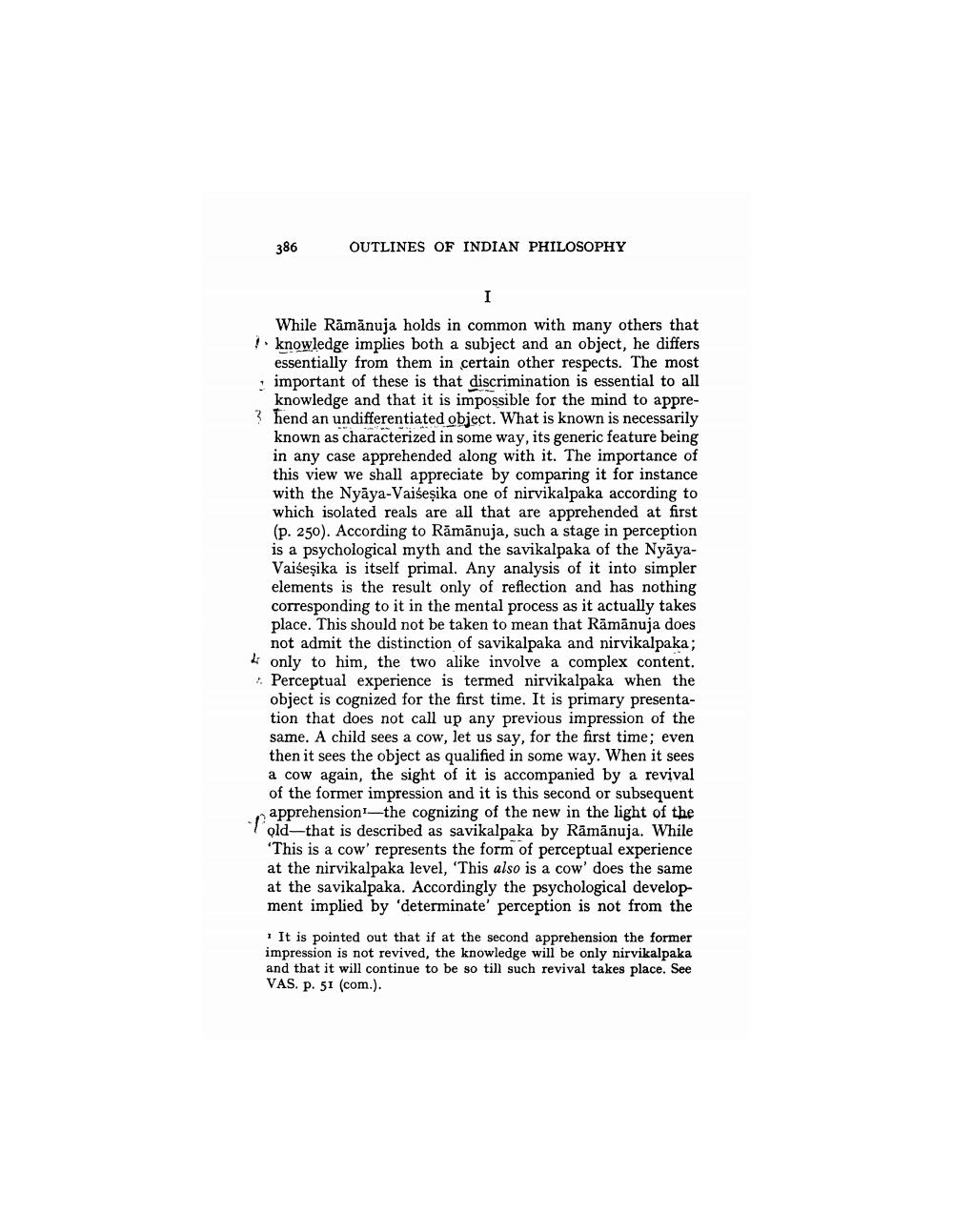________________
386
OUTLINES OF INDIAN PHILOSOPHY
I
While Rāmānuja holds in common with many others that 1 knowledge implies both a subject and an object, he differs
essentially from them in certain other respects. The most important of these is that discrimination is essential to all
knowledge and that it is impossible for the mind to appre3 hend an undifferentiated object. What is known is necessarily
known as characterized in some way, its generic feature being in any case apprehended along with it. The importance of this view we shall appreciate by comparing it for instance with the Nyāya-Vaišeșika one of nirvikalpaka according to which isolated reals are all that are apprehended at first (p. 250). According to Rāmānuja, such a stage in perception is a psychological myth and the savikalpaka of the NyāyaVaišeşika is itself primal. Any analysis of it into simpler elements is the result only of reflection and has nothing corresponding to it in the mental process as it actually takes place. This should not be taken to mean that Rämānuja does
not admit the distinction of savikalpaka and nirvikalpaka; h only to him, the two alike involve a complex content.
Perceptual experience is termed nirvikalpaka when the object is cognized for the first time. It is primary presentation that does not call up any previous impression of the same. A child sees a cow, let us say, for the first time; even then it sees the object as qualified in some way. When it sees a cow again, the sight of it is accompanied by a revival of the former impression and it is this second or subsequent
apprehension the cognizing of the new in the light of the Told-that is described as savikalpaka by Rāmānuja. While
'This is a cow' represents the form of perceptual experience at the nirvikalpaka level, 'This also is a cow' does the same at the savikalpaka. Accordingly the psychological development implied by 'determinate' perception is not from the
It is pointed out that if at the second apprehension the former impression is not revived, the knowledge will be only nirvikalpaka and that it will continue to be so till such revival takes place. See VAS. P. 51 (com.).




